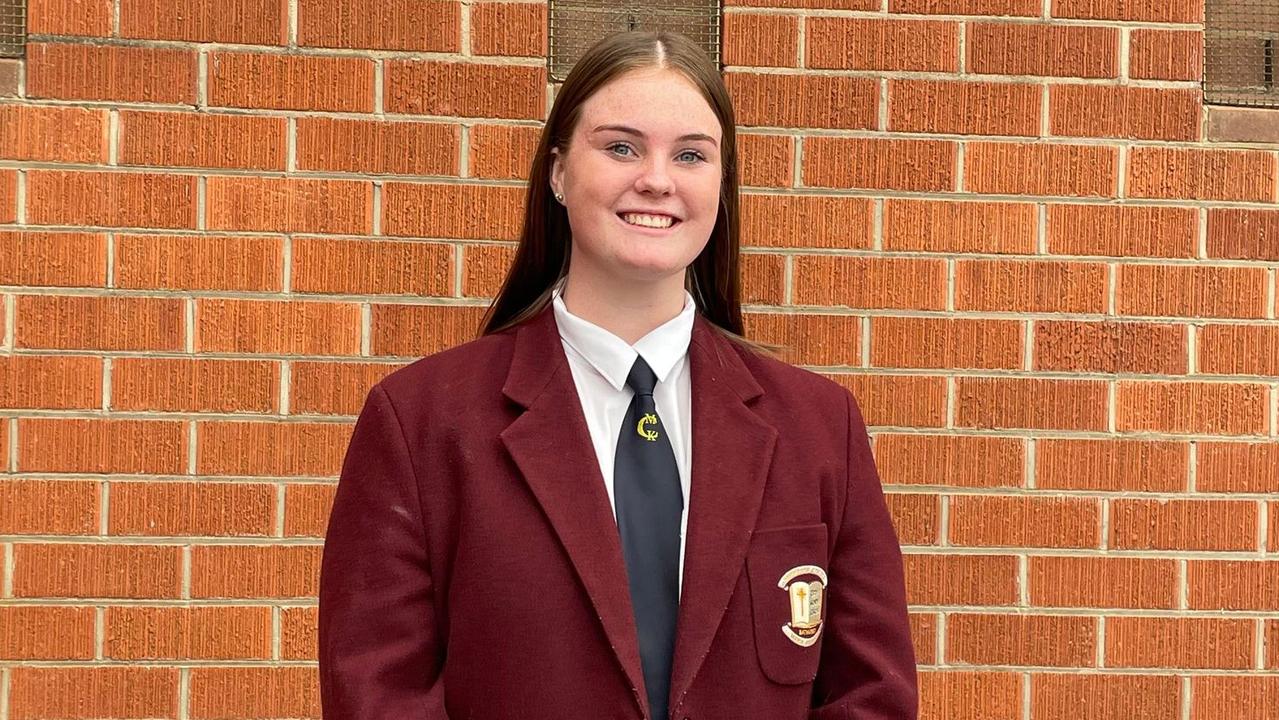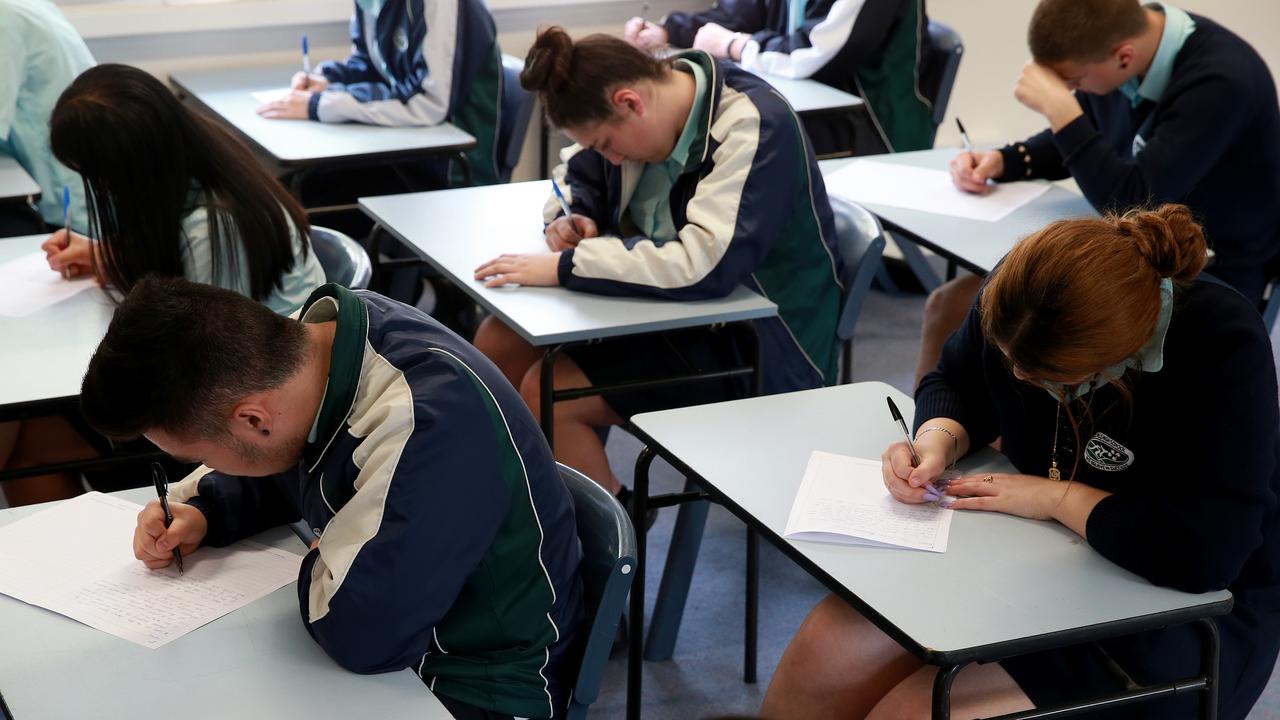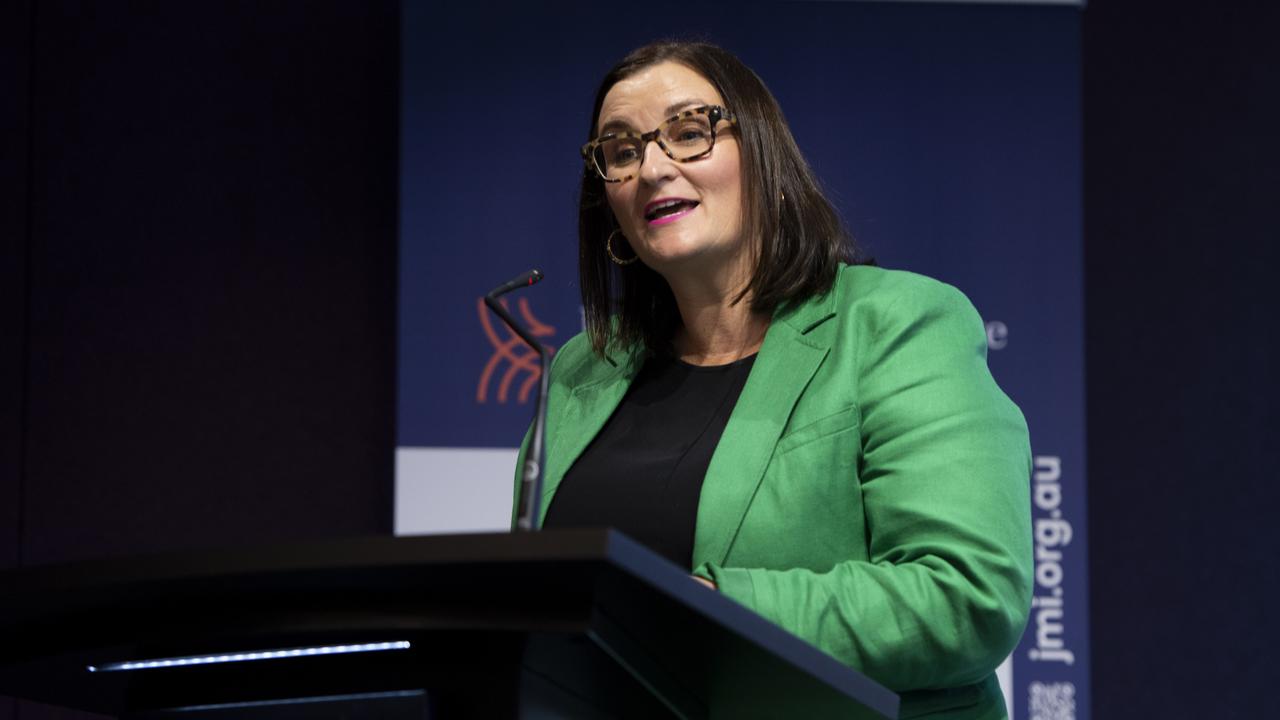Concern ‘quiet quitting’ has crept into HSC exams as 24,700 early university offers made
As students begin their HSC exams today, a new trend means tens of thousands of teenagers are feeling relatively stress-free about their marks.

Tens of thousands of NSW students have already received offers from universities before HSC exams even begin on Wednesday, alleviating the pressure of the next few weeks.
While students welcome the idea of being considered by universities for their character and extra-curricular achievements over their exam marks, there has been criticism and concern from schools that it encourages students to “quietly quit” exams.
Quiet quitting is the newly coined term for quitting the idea of going above and beyond – primarily used to describe when workers only do the job that they are paid to do without putting in any extra time or energy.
Charlotte Sullivan, a Year 12 student at MacKillop College in Bathurst, is one of many students who was on the receiving end of more than 24,700 offers made by NSW and ACT universities before the HSC exams started.
She actually received more than one offer and has accepted an unconditional offer to study a Bachelor of Nursing at Charles Sturt.
Want to stream your news? Flash lets you stream 25+ news channels in 1 place. New to Flash? Try 1 month free. Offer ends 31 October, 2022 >

The teen applied back at the start of the year and received her offer in May.
“I accepted (an early offer) because since the beginning of Year 10 I wanted to be a nurse,” she told news.com.au.
“We had to answer questions like how I would use this degree to make the world better … more showing our soft skills rather than our test results.”
Charlotte specifically wants to work in palliative care, making patients feel as comfortable and supported as she can.
Knowing she has a spot in university doing exactly what she wants has changed her perspective going into the HSC exams.
“I’m taking more of a relaxed approach, which can seem a little bit like I’m slacking but I’m obviously still studying. It’s just not the be all and end all,” she explained.
She said as soon as she got an early offer, school was a lot less stressful.
Charlotte pointed out she had not underperformed in any tests yet so the relaxed approach was working.
Charles Sturt has made 5313 early entry offers, which the university told news.com.au was an increase of more than 60 per cent on last year.
The three most offered courses were a Bachelor of Nursing, Bachelor of Education (K-12), and Bachelor of Health and Medical Science.

Western Sydney University alone has made 11,270 early entry offers, with another two offer rounds remaining. It holds the view “students are much more than their ATAR”.
Australian Catholic University has made about 5000 early offers in NSW and ACT, and Australian National University in Canberra has made 3,139 early offers to NSW students.
ANU said it had seen “an incredibly high acceptance rate” this year (85 per cent) of its total 5041 early offers for undergraduate spots.
Under the NSW University Admissions Centre’s school recommendation scheme, 24,417 students have made applications for early offers – similar to last year. However, students won’t find out about early offers through that scheme until after exams on November 11.
The University of Wollongong and University of Technology Sydney also did early offers but did not provide numbers to news.com.au.
A UOW spokeswoman explained: “The (early admission) program assesses students beyond their ATAR, taking into account an applicant’s academic readiness as well as their unique skills and experiences, personal attributes and attitudes.”
Like Charlotte’s offer, some are unconditional, which means she has a university place no matter how she performs in exams. Other early offers are conditional.
ACU’s provost, professor Meg Stuart, said the majority of offers made by her university were conditional.
“Of around 5000 early offers that ACU has made to students in NSW and ACT, the majority of these are conditional, with the expectation that students will complete their HSC and satisfy all other requirements for entry into their desired course,” prof Stuart said.
“A number of unconditional offers are made on an equity basis for students who are assessed to be capable of taking on the rigors of university study. Outcomes for students who receive early offers are very positive, with higher than average retention and success in their studies.”

Following criticism of the number of early offers handed out by NSW universities, new rules are expected to govern the process from next year.
“Early offers from universities can play a valuable role in reducing stress on students,” NSW Education Standards Authority (NESA) chair Prof Peter Shergold told The Daily Telegraph.
“The danger is if they start to undermine the importance of the HSC. NESA is working closely with NSW Vice-Chancellors on a set of principles to guide the use of such offers.”
NSW Education Minister Sarah Mitchell also said this week the department would “consider further” how early offers interact with the HSC as “it is clear that university entry pathways have changed significantly in recent years”.
Early offers have been a hot topic on HSC discussion groups on social media, with many students expressing concern in the last few days about the talk of new rules.
On Monday one student asked the point of studying and stressing over the exams when so many students had early offers.
Some students pointed out their offers were conditional and still required a good ATAR, such as at UTS.
Other motivations were attending the high achievers assembly at their school or simply, “validation”.
Some said their desired course didn’t offer early entry or they hadn’t received an offer.
“Because my parents gave me the whole ‘we worked really hard to give you the best life’ talk,” one student answered.
“I literally can’t not stress,” said another.
Early offers have been made across a range of study areas including nursing, education, science, health and medical sciences, arts, communication, law, commerce, business, engineering, psychology, criminology, cybersecurity, construction management and social work.






